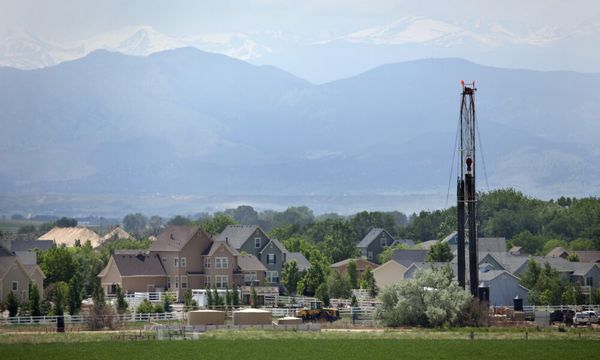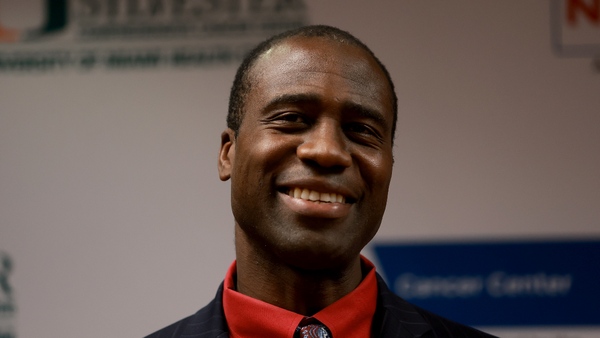The Democratic National Committee is debating a significant change to its nominating calendar, one that would presumably disallow Iowa’s current first-in-the-nation caucus. This change will solve nothing and weaken the party’s nomination system.
Iowa voters are representative of those the DNC needs to attract, and the caucuses are superior to a primary in choosing a candidate who can win the presidency.
The party nomination process that leads to the selection of a presidential nominee is not an election. It is a party selection process. The goal is to find the best candidate to win the general election.
I am a transplant to Iowa. Before my arrival, like most Americans who live outside the state, I viewed Iowa’s caucus system with skepticism. Having now spent more than two decades in the state, I appreciate the unique value Iowa adds to the presidential nomination process.
The most prominent criticism of the Iowa caucuses is that Iowa is not demographically representative of the Democratic Party. That’s true. But it has never stopped Iowans from supporting diverse candidates. Jesse Jackson, Barack Obama and Kamala Harris (and Republicans Alan Keyes and Herman Cain) had greater support in Iowa than they initially garnered in national polls. Iowans came out to support the first woman to win a major party nomination in 2016 and a gay candidate in 2020.
In fact, research has found that Iowa’s Democratic caucusgoers are ideologically representative of Democrats nationally. As a Midwestern state with significant postindustrial rural areas, Iowa voters also share the concerns of states that have recently decided the general election — Wisconsin, Michigan and Pennsylvania. Prioritizing the interests of voters in these areas helps the Democrats select candidates who can win.
The DNC proposal would allow states to petition to become one of the first four contests, with priority given to those states that conduct primaries. The proposal may be borne of good intentions, but it would only exacerbate the worst aspects of American presidential campaigns. The election will become longer, more expensive, more media-driven and less personal, favoring establishment candidates who are well-known and well-funded.
In contrast, money and name recognition are less of an advantage in Iowa’s caucus system. Campaigns must win over advocates who will be their spokespeople on caucus night. This is not achieved through stump speeches.
Instead, for candidates to compete in a caucus, interacting with voters is an essential skill. Candidates must answer questions from voters at town halls, kitchen tables, diners, church potlucks and manufacturing plants. Time and effort are more important than money. Candidates with smaller bank accounts and less name recognition can compete in the Iowa caucuses if they have a strong message and work ethic.
Another disadvantage of a primary is that candidates can win by building support in the most populated areas and ignoring voters in sparsely populated areas. That does not serve the best interests of the Democratic Party. Democrats need to sway voters outside of cities to win a general election. To be successful, the party must nominate candidates who also appeal to some rural, exurban and suburban voters.
Caucuses distribute voting power more evenly geographically. Successful candidates in Iowa cannot focus solely on the state’s most populated areas. They must build a strong network of supporters in farming communities, industrial towns, and cities.
For these reasons, a caucus is superior to a primary in narrowing the early pool of candidates to those who can win a general election. Iowa’s unique advantage above all other states is decades of experience in running a caucus system. Iowa has well-established county-level parties in each of its 99 counties. These county parties are the ground-level organizations that provide the events and forums for candidates to meet voters. Iowa county-level party organizers are enthusiastic, experienced volunteers who cannot be easily replicated.
For these reasons, the Iowa caucuses allow for an even playing field where a little-known candidate without a big bank account can gather momentum. A wide range of ideologies and interests can be brought to bear on the selection of a Democratic nominee capable of winning the general election.
Furthermore, the Iowa caucuses remain one of the last places where people gather together with others to discuss political issues. It can seem chaotic or inefficient (it certainly can be), but we need spaces where we meet face to face to hash out political disagreements in a structured and productive way. In an atomized, polarized, distracting and distrustful political environment, the Iowa precinct caucuses offer a rare moment when people come together to make decisions about the future of our democracy. That’s special and worth preserving.
The 2020 Democratic caucus debacle was not representative of the long legacy of the Iowa caucuses. Rather than continue to undermine the state’s unique contribution to the nomination process, the DNC should work alongside the Iowa Democratic Party to fix those problems and guarantee that changes can be implemented successfully.
____
ABOUT THE WRITER
Rachel Paine Caufield is a professor of political science at Drake University in Des Moines, Iowa.







